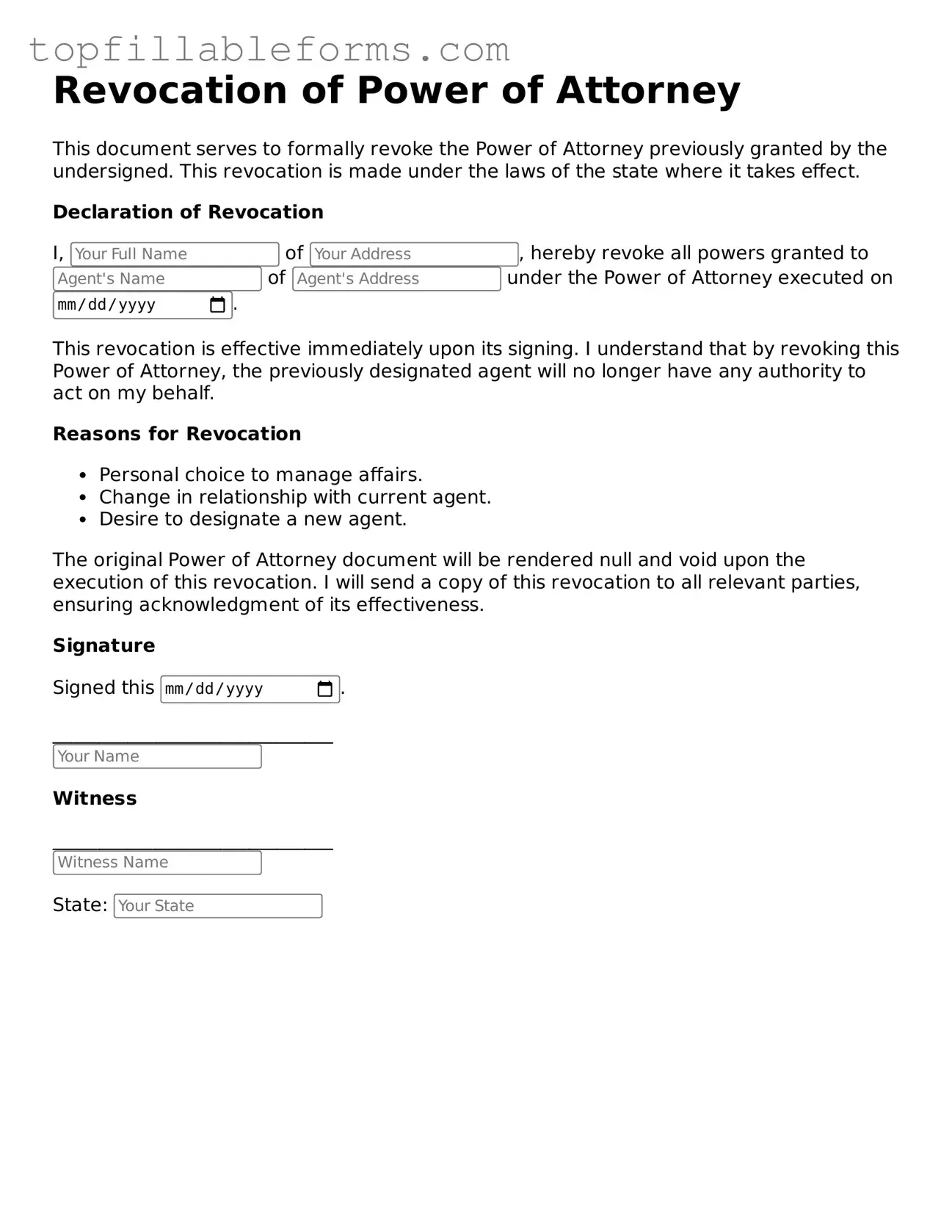Free Revocation of Power of Attorney Form
The Revocation of Power of Attorney form is a legal document used to cancel a previously granted power of attorney. This form is essential for individuals who wish to terminate the authority they have given to another person, ensuring that their decisions and affairs are no longer managed by that individual. Understanding the significance of this form can help protect personal interests and maintain control over important decisions.
Open Revocation of Power of Attorney Editor Here

Free Revocation of Power of Attorney Form
Open Revocation of Power of Attorney Editor Here
Finish the form now and be done
Finish your Revocation of Power of Attorney online by editing, saving, and downloading fast.
Open Revocation of Power of Attorney Editor Here
or
▼ PDF File
